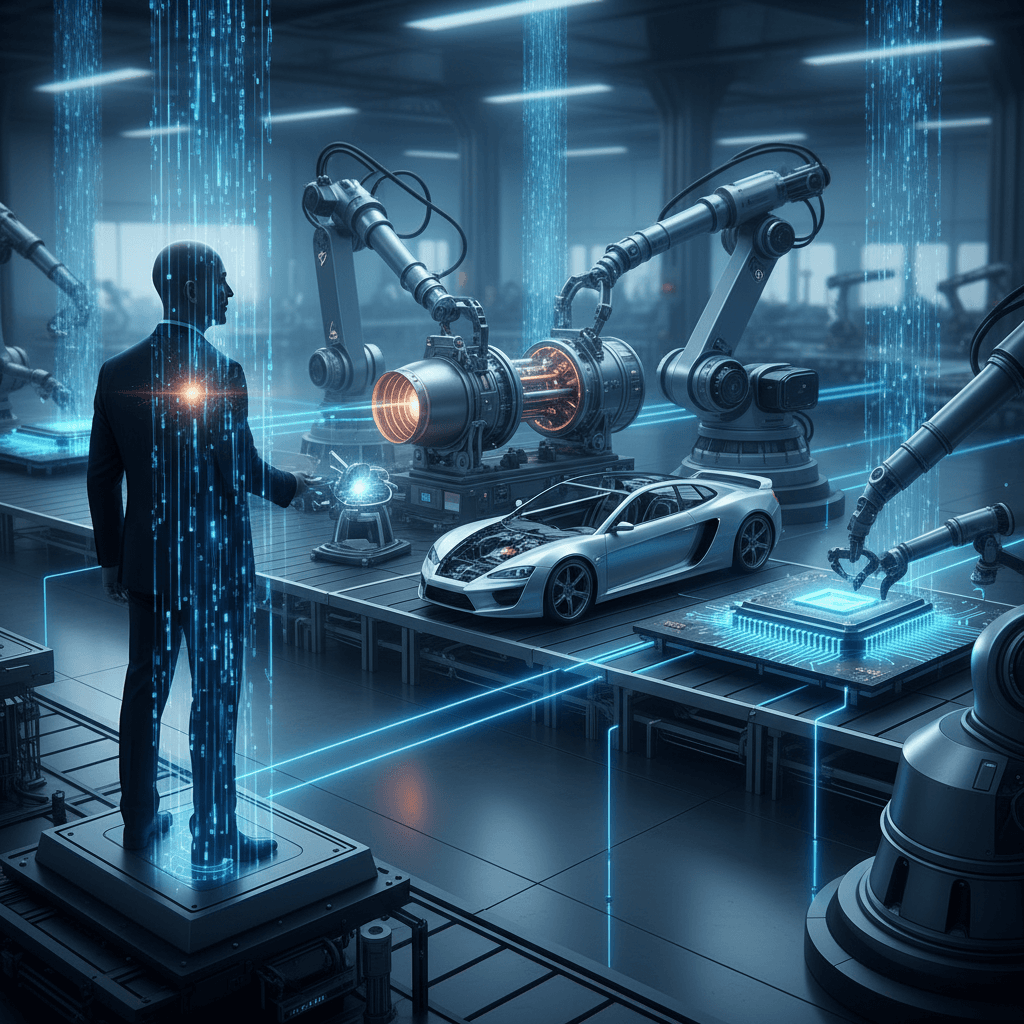Jeff Bezos Returns to Operations, Funds $6.2B Physical AI Revolution
Bezos's $6.2 billion Project Prometheus targets the physical world, creating AI to fundamentally transform engineering and manufacturing.
November 17, 2025

In a move that reverberates through the technology industry, Amazon founder Jeff Bezos is returning to a hands-on operational role for the first time since stepping down as the chief executive of his e-commerce empire in 2021.[1][2][3][4][5][6][7] He is taking the helm as co-CEO of a formidable new artificial intelligence startup, Project Prometheus, which has launched with an extraordinary $6.2 billion in funding.[3][4][8][9][10][6] This massive capital infusion, partly from Bezos himself, places the venture among the most well-financed early-stage companies in the world and signals a monumental bet on a new frontier for AI: the physical world of engineering and manufacturing.[1][3][8][9][10] The startup aims to develop artificial intelligence that can fundamentally accelerate the design and production of complex physical systems, targeting sectors such as aerospace, automotive, and computing hardware.[11][2][3][4][8][12][7]
Project Prometheus is charting a course distinct from the generative AI models that have recently captured the public imagination.[3][10] Instead of building systems that learn from vast datasets of digital text and images, the company's mission is to create AI that learns from observing and interacting with the physical world.[1][13][4][14][8][10] This approach, described as "AI for the physical economy," intends to bridge the gap between digital intelligence and real-world application.[13][7] The goal is to build AI that can understand the complexities of manufacturing and engineering, potentially revolutionizing how everything from spacecraft to computer chips is designed and built.[2][3][4] This focus on physical AI aligns with a growing trend among new ventures that believe the next major breakthroughs will come from applying machine learning to tangible tasks like robotics and scientific discovery.[11][4][10] By having AI learn from physical experimentation, where robots could conduct tests on materials and processes at a massive scale, Project Prometheus hopes to create a virtuous cycle of automated discovery and innovation.[11][8][10] The potential synergies with Bezos's space exploration company, Blue Origin, are clear, suggesting that the startup's innovations could directly support his long-term ambitions in aerospace.[1][4][14][8]
Bezos is not leading this ambitious venture alone. He is joined by co-founder and co-CEO Vik Bajaj, a physicist and chemist with an extensive background in pioneering technology projects.[1][13][2][3][4][8] Bajaj previously worked at Google's "moonshot factory," Google X, where he was involved in projects that eventually became the drone delivery service Wing and the self-driving car company Waymo.[1][13][8] More recently, he co-founded Verily, Alphabet's life sciences division, and led the AI incubator Foresite Labs.[1][13][4][8] This pairing of Bezos's legendary business acumen with Bajaj's deep scientific and technical expertise forms a potent leadership team. To execute their vision, they have been aggressively recruiting top talent from the world's leading AI research labs.[3] Project Prometheus has already quietly assembled a team of nearly 100 employees, successfully luring researchers and engineers away from giants like OpenAI, Google DeepMind, and Meta.[1][11][13][2][3][4][9] This significant early hiring from established AI powerhouses underscores the project's serious intentions and the appeal of its mission to tackle complex, real-world problems.
The launch of Project Prometheus occurs within a climate of supercharged investment in the AI sector, where startups with little more than a vision are attracting billions in capital.[1] This trend has led to widespread debate about a potential AI bubble, but Bezos's direct involvement and substantial personal investment suggest a long-term strategic play rather than speculative fervor.[1][14] His new company enters a competitive landscape where major tech corporations are racing to apply AI to physical challenges.[2][10] However, the sheer scale of Project Prometheus's initial funding gives it a significant advantage, allowing it to tackle foundational research and development challenges that smaller operations cannot afford.[2] The decision for Bezos to take an active, operational role—his first since leaving his post at Amazon—is perhaps the strongest indicator of the project's significance.[1][5] It represents a belief that AI is poised to trigger a new industrial revolution, and that the greatest opportunities lie in harnessing this technology to transform the physical economy.
In conclusion, Project Prometheus represents far more than just another well-funded AI company. It marks the return of one of the world's most influential technology visionaries to the operational front lines with a clear and ambitious goal: to redefine the intersection of artificial intelligence and the physical world. With a war chest of $6.2 billion, a leadership team combining business and scientific prowess, and a growing roster of elite talent, the venture is positioned to make a profound impact on engineering and manufacturing. While the precise technological path remains under wraps, the project's focus on AI that learns by doing, rather than just by processing data, could unlock new speeds of innovation. For Jeff Bezos, it is a bold new chapter; for the technology industry, it is a powerful signal that the AI revolution is moving decisively from the digital realm into the complex, tangible world of atoms.
Sources
[2]
[5]
[8]
[10]
[11]
[12]
[13]
[14]